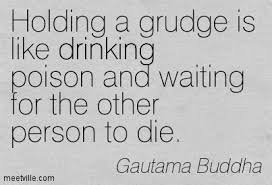 When I was very young, I was terrified of getting a shot. I don’t know where that came from. It might have been as simple as hearing one of my parents say, “I hope this won’t hurt much.” All I know is that whenever I was to get a shot, I threw a screaming, thrashing fit that required my parents and a team of nurses to hold me still. It didn’t matter that they rarely hurt. I had my mind made up and nothing was going to change it. And of course, with a team holding me still, my terror escalated and was thereby justified. That’s a self-fulfilling prophecy.
When I was very young, I was terrified of getting a shot. I don’t know where that came from. It might have been as simple as hearing one of my parents say, “I hope this won’t hurt much.” All I know is that whenever I was to get a shot, I threw a screaming, thrashing fit that required my parents and a team of nurses to hold me still. It didn’t matter that they rarely hurt. I had my mind made up and nothing was going to change it. And of course, with a team holding me still, my terror escalated and was thereby justified. That’s a self-fulfilling prophecy.
Some labels and judgments simplify life. My desire to protect my children prompted me to tell them it was “bad” to run into the street. I wanted them to be wary enough not to test that lesson every time they were in the front yard. I relaxed that judgment for them when it was necessary for them to cross the street to go to school.
Labels and judgments become limiting, however, when we no longer question their validity. I no longer throw a screaming fit when I get a shot. I even give a pint of blood a few times each year. All of that required having some experiences that contradicted my assumptions, and it required some serious “talking myself down” from the terror. In fact, I still have to talk myself down a bit.
Judgments about other people are always limiting.
Much of my counseling work involved helping my clients move toward feelings, memories, and experiences they had learned to avoid. In grief work, for example, no one wants to purposely move into the feelings involved in grief. No one wants to feel that bad on purpose. No one wants to think clearly about the depth and intensity of their loss. Many close off those feelings and label them as “bad.”
Some well-meaning friends and family conspire with them to avoid the feelings with placating statements. “Oh, honey, don’t cry. She’s in a better place. Just remember the good things.” Others conspire simply by never talking about the deceased person. “It doesn’t do any good to bring up the past.”
But that kind of judgment and avoidance cuts us off from the valuable lessons inherent in any loss. Without moving into the grief, we cannot fully appreciate the loved one or fully embrace life without their presence. We’re stuck.
 That’s what labels and judgments can do. Without being willing to reconsider, we are stuck with those judgments. Grudges between people get perpetuated that way. Unexamined paranoia toward groups or institutions guarantees their perpetuation. When that happens we are stuck in a life of self-fulfilling prophecies.
That’s what labels and judgments can do. Without being willing to reconsider, we are stuck with those judgments. Grudges between people get perpetuated that way. Unexamined paranoia toward groups or institutions guarantees their perpetuation. When that happens we are stuck in a life of self-fulfilling prophecies.
As long as I am judging, I see only what I am looking for.
I hear only what I am listening for.
I cut myself off from a new perspective. The New Testament refers to “a new mind.” A mind free of judgment, perhaps?
Stillness allows us to suspend judgments and opens us to new possibilities.
0 Comments until now
Add your Comment!